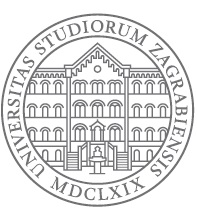Title Spolne razlike u pojavnosti depresivnog poremećaja Title (english) Gender differences in the prevalence of depressive disorders Author Petra Lederer Mentor Alma Mihaljević-Peleš (mentor)Committee member Marina Šagud (predsjednik povjerenstva)Committee member Dražen Begić (član povjerenstva)Committee member Alma Mihaljević-Peleš (član povjerenstva)Granter University of Zagreb Defense date and country 2014-01-31, Croatia Scientific / art field, BIOMEDICINE AND HEALTHCARE Abstract Spolne razlike imaju bitnu ulogu u pojavnosti, kliničkoj slici i liječenju mnogih psihičkih i
tjelesnih bolesti i poremećaja. Među psihičkim poremećajima, ta se različitost posebno jasno
vidi u depresivnm poremećaju.
Žene, neovisno o etničkoj i nacionalnoj pripadnosti, imaju statistički dva puta veću
pojavnost depresije od muškarca. Nadalje kod muškaraca se depresija često previdi i rjeđe
dijagnosticira. Spolne razlike u prevalenciji depresivnih epizoda naročito su vidljive od
puberteta pa do predmenopauzalnog perioda, korespondirajući s generativnim životnim
razdobljem žene. Najveća incidencija se javlja tijekom fertilne dobi, što se tumači cikličkim
djelovanjem hormona.
Postoje četiri tipa depresivnog poremećaja vezanih uz cikličko djelovanje hormona,
specifična za reproduktivno razdoblje žene: predmenstrualni disforični poremećaj, depresija
u trudnoći, postpartalna depresija i depresivni poremećaj u menopauzi.
Klinički izražaj simptoma druga je važna različitost depresije u žena i muškaraca koja se
očituje u tome što žene u većoj mjeri imaju prisutan i neki prateći poremećaj, najčešće
anksiozni poremećaj i poremećaje hranjenja, a muškarci pate od različitih tipova ovisnosti.
Žene često imaju atipične simptome poput porasta apetita i tjelesne težine, dok muškarci
češće pokazuju tipične neurovegetativne simptome poput insomnije i gubitka težine. Žene
također drugačije percipiraju i izražavaju emocije, a time i svoje simptome, te imaju snažniji
subjektivni doživljaj težine svojih simptoma. Također, žene češće pokušavaju suicid, no
muškarci ga češće i dovršavaju, birajući pri tom drugačija sredstva.
Razlike s obzirom na spol postoje i ovisno o antidepresivnoj terapiji, što se nastoji tumačiti
razlikama u farmakokinetici i utjecaju hormona.
Zaključno, pri dijagnosticiranju, liječenju i praćenju bolesnika oboljelih od depresije, nužno
je uzeti u obzir i spolne razlike.
Abstract (english) Gender differences play a key role in the occurrence of depressive disorders. Women,
regardless of ethnical or national belonging, are statistically two times more prone to suffer
from depression, with men depression is often predicted, but rarely diagnosed. Sexual
differences in the prevalence of depressive episodes are seen in early puberty (around 10
years) and last until middle age, characteristically corresponding with the generative life
span of women, with the greatest incident rate during the fertile period, what is likely due to
the cyclical functioning of the hormones. There are four types of disorders linked to the
cyclical functioning of the hormones specific for women’s reproductive period: premenstrual
disphoric disorder, depression during pregnancy, postpartal depression and the depressive
disorder during menopause. The clinical expression of symptoms is the second most
important difference between male and female depression, which is seen in the fact that
women frequently have an accompanying disorder, most often an anxiety disorder or an
eating disorder, while men suffer from different types of addiction. Women often have
atypical symptoms such as an increase in appetite and body weight, while men frequently
show typical neurovegetative symptoms such as insomnia and the loss of weight. Women
also perceive and express emotions differently and with it their symptoms, and they have a
more powerful subjective experience regarding the significance of their symptoms. Women
also attempt suicide more frequently, while men commit it more frequently, both choosing
different means to do so. Differences regarding gender also exist depending on the
antidepressant therapy, which is likely due to the differences in pharmacokinetics and their
influence on hormones. Finally it is necessary to take into account gender differences
regarding diagnosis, treatment and the observation of patients suffering from depression.
Keywords
depresija
depresivni poremećaj
spolne karakteristike
Keywords (english)
Depression
Depressive Disorder
Sex Characteristics
Language croatian URN:NBN urn:nbn:hr:105:923780 Study programme Title: Medicine Type of resource Text File origin Born digital Access conditions Access restricted to students and staff of home institution Terms of use Repository Dr Med - University of Zagreb School of Medicine Digital Repository Created on 2015-12-15 13:14:26


